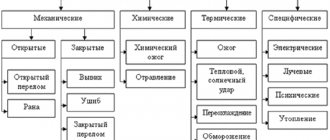The rights and responsibilities of employees are the first thing a person who joins a job should learn. Including if the employee enters into an employment contract. An employment contract is an agreement that describes in detail each right and obligation of an employee within the framework of his work activity at the workplace in question.
The labor rights of an employee are specified in the country's Constitution. Every employee has the right to comply with his legal rights and obligations. Not only the employee, but also the employer must comply with labor legislation. This is guaranteed by the state. But for the rules to work, a formal agreement, such as an employment contract, must be drawn up. The parties to the agreement in question are the employee and the employer. Each party has not only rights, but also responsibilities. If any of this is violated, you will have to bear responsibility. This is how labor rights are protected.
According to the labor code
Modern Labor Code in Art. 21 and 22 clearly reflect the position of the law in relation to the rights and obligations of the parties to employment contracts. These articles provide an open list of specific rights and obligations of each party, which can be supplemented within the framework of employment contracts, if these additions do not contradict the current legislation of the Russian Federation.
This legislative position greatly facilitates the practice of legal labor protection: in the event of labor disputes related to these issues, it is possible to clearly clarify the problem from the point of view of the law, since all the main powers of the parties are presented in the text of the Labor Code of the Russian Federation.
What rights does an employer have?
In the same article 22 of the Labor Code of the Russian Federation, the rights of the employer are reflected in full, echoing the responsibilities of workers.
IMPORTANT!
The employer has fewer powers than the requirements for him. But they are protected and guaranteed by law in the same way as the rights of subordinates. And if they are violated, then the company has the right to defend the truth in court.
It will become clearer that these are the employer’s labor rights if we divide them into several categories in relation to:
- to every worker;
- team of employees;
- other firms with hired labor.
In relation to an individual subordinate, the organization has the right:
- hire and fire, entering into and breaking contracts;
- stimulate and reward for responsible performance of duties;
- insist on the careful attitude of subordinates to material values;
- demand compliance with labor regulations;
- punish for violation of discipline and other internal rules, compensate for material shortages, etc.
From the point of view of relations with the team of employees, the employer’s rights enshrined in the code include:
- shaping community conversations;
- signing of collective agreements;
- formation of advisory bodies at the enterprise to defend the common interests of the team.
When cooperating with other companies, the employer is not obliged, but has the right to conduct joint activities and join associations, business unions and industrial groups to protect common interests. The employer’s competence includes the publication of LNA and other documents, participation in the creation of agreements, programs, proposals to government agencies, organizations, etc.
ConsultantPlus experts examined whether the employer has the right to introduce into the internal labor regulations the obligation of employees to do industrial gymnastics once a day and periodically pass the GTO standards, as well as introduce liability for failure to comply with these requirements. Use these instructions for free.
Rights and responsibilities of employees that cannot be neglected
The Labor Code of the Russian Federation provides the text of the mandatory duties of employees, the level of which cannot be reduced under any working conditions and employment conditions. It also lists the rights of employees, which are guaranteed unconditionally. Such rights and responsibilities are called fundamental . They cannot be reduced by the employer - neither unilaterally, nor even by mutual consent, since they are strictly declared by law, and the direct responsibility of the employer is to ensure them. Neglect of this rule of law is fraught with liability.
Main responsibilities of hired personnel
As part of his individual employment contract, the employee is obliged to comply with the following obligations.
- The labor functions assigned by the contract to the hired employee are subject to strict performance to the extent specified in the contract.
- The internal regulations adopted by the local act of the enterprise become the norm for the employee, which he is obliged to adhere to.
- Any employee is subject to the requirements of labor discipline.
- Labor safety and protection, expressed in the rules adopted by the organization, is also a strict guide to compliance.
- In the process of work, the employee must achieve compliance with accepted labor standards.
- The property fund of the enterprise, material assets belonging to the employer or accepted by him for safekeeping from other persons, require careful treatment and safety on the part of the staff.
- If circumstances arise that may threaten the life, health or safety of property of personnel, the employer or third parties located at the enterprise, the employee’s duty is to inform his immediate supervisor about this as soon as possible.
- Recognize the significance of the concept of “trade secret” and, in general, any information data related to the work:
- if the employer has established one or another secrecy regime, comply with it;
- do not use information about the company for personal purposes and do not transfer it without the consent of the employer;
- if cooperation is terminated, all information media must be returned if they contain trade secrets, or such information must be destroyed in front of the employer.
NOTE! These obligations, given in the Labor Code in a general form, are specified or extended in specific cooperation agreements, additional agreements thereto, regulations, and instructions.
What is the employer entitled to?
The rights of the employer extend to a number of actions related to the following labor issues:
- various actions aimed at the dynamics of employment contracts: conclusion, amendment, termination, renegotiation;
- collective agreements and actions related to collective relations;
- employee incentives;
- ensuring the responsibility of working personnel;
- all actions related to internal regulatory documents.
In Art. 22 contains a list of employer rights (also detailed, but not exhaustive).
- The employer has the right to maintain relevant documentation - employment contracts, local acts, collective agreements, regulations, etc.
- The employer is allowed to reward employees by any means for the proper fulfillment of their labor obligations.
- For failure to comply with the requirements of the Labor Code of the Russian Federation and the rules stipulated by internal documentation, the employer has the right to hold its employees accountable as provided for by law.
- The employer’s legal right is to demand from its personnel careful treatment of the company’s property, equipment, materials, etc., as well as strict adherence to established labor safety rules and technological processes.
- An employer may be the creator or member of any associations acting to protect the interests of this category.
NOTE! Like the employee, the employer is also protected by law in guaranteeing the observance of his rights, and in the event of their violation, he can apply to defend his interests in the courts.
Ensuring basic rights of employees
Directly follow from the obligations of employers prescribed by labor legislation. An employee who assumes the functions of concluding an employment contract can count on the following rights.
- The concluded employment contract is a reciprocal document, so the employee can, for his part, initiate its signing, modification and termination within the framework of federal law.
- Through their representatives, personnel have the right to influence the collective agreement: negotiate, conclude collective agreements, and monitor the implementation of the provisions of the agreement.
- The concluded employment contract guarantees the unfailing provision of appropriate employment.
- An employee who comes to work can count on a workplace equipped according to accepted standards, the availability of materials, tools, equipment, documents, etc., necessary to perform the functions specified in the contract.
- One of the main goals of employment for an employee - financial security - must be provided regularly and completely (depending on qualifications, complexity of the work performed, its quantity).
- A staff representative can freely rest during the allotted time: during a lunch break, leaving work with a reduced working day, on weekends and holidays, during annual leave or other types of free time provided to him.
- The employee must be timely and fully informed about all the issues he needs regarding working conditions, its organization, safety, including legislative changes.
- If the job requires additional training or education, it must be provided by the employer (within the framework established by the Labor Code and other provisions of the law).
- To ensure and protect his interests, an employee can become a member of any professional associations, unions, organizations.
- The employee has the right to participate in the management of the organization, limited to certain forms provided for by the Labor Code and other regulations.
- If an individual or group conflict arises related to labor disagreements, it must be resolved by the methods established in the Labor Code. The employee is allowed to protect his infringed interests by any methods permitted by law.
- If an employee was harmed in the process of work due to the fault of the employer, he has the right to count on damages and compensation.
- All employees must be provided with compulsory social insurance.
FOR YOUR INFORMATION! The employer is not authorized to reduce the list of personnel rights, but within the framework of concluded employment contracts and/or additional agreements it is allowed to expand it.
What are the employer's responsibilities?
The relationship between employees and employers is regulated by the Labor Code.
The rules regarding detailed powers and obligations are established for employees in Art. 21, for the employer - in Art. 22. Although many provisions in this area are enshrined in other regulations - in the Tax Code, laws on social insurance, on social insurance, on trade unions, etc. In practice, usually the rights and obligations of the employer under the Labor Code of the Russian Federation are briefly stated in contracts with employees and local regulations. If we analyze the norms of the Labor Code of the Russian Federation, it is clear that employers have less powers and more obligations than subordinates. This is quite logical when it comes to labor relations. Because the goal of the legislator is to protect workers who are economically and socially weaker and dependent on the organizations that hire them.
In order to clearly define what rights and responsibilities an employer has, they are divided into several groups, depending on who they belong to:
- to one employee;
- to the work team;
- to government agencies;
- to other organizations that employ workers.
The employer's obligations include the first three points. The largest list of requirements concerns relationships with a specific subordinate. Here is a list of measures that an employer owes an employee:
- provide the opportunity for work provided for in concluded contracts;
- arrange the workplace and provide everything necessary - tools, equipment, mechanisms, documents, etc.;
- organize the necessary economic and living conditions for activities;
- take care of safe working conditions;
- provide equal earnings for work of similar value;
- issue earned money in full and on time - within the period provided for in the Labor Code of the Russian Federation, in an individual agreement, collective agreement, LNA;
- familiarize with issued acts, orders and other internal documents against signature;
- transfer social insurance contributions;
- compensate for moral damage as required by law.
If we talk about relations with the state, then the main responsibilities of the employer include the obligation to follow the letter of the law in the labor sphere and comply with adopted regional and federal agreements at the industry level. If complaints arise from government inspection agencies, it is necessary to eliminate shortcomings and violations.
Relations with the team involve fulfilling the labor responsibilities of employers in the field of collective agreements and interaction with professional communities. Among the main requirements in this area:
- conduct collective bargaining;
- provide truthful information to trade unions and other organizations for signing a collective agreement;
- take into account the opinion of professional communities in situations specified in the Labor Code of the Russian Federation;
- eradicate the shortcomings indicated by the trade union committee or other representatives of workers;
- report to the trade union committee on resolved problems;
- manage the company taking into account the opinions of workers.
Additional rights and responsibilities for employees
Basic obligations and rights do not in any way prevent the possible emergence of additional ones. Section 12 of the Labor Code of the Russian Federation declares such powers of both parties.
Certain responsibilities assigned to the employee in addition to the main ones must be recorded in special documents (regulations, instructions, amendments to employment contracts). They must receive permission from both parties, which is confirmed by signatures on the relevant documentation.
The unilateral introduction of additional duties beyond the list of mandatory ones is not allowed.
In the same way, the list of rights can be expanded: additional rights of employees should also be reflected in local regulations. Their acceptance for mutual execution is recorded by the signatures of both parties.
Employment contract
In accordance with Article 56 of the Labor Code of the Russian Federation, an employment contract is an agreement between an employer and an employee, according to which:
- The employer undertakes:
- provide the employee with work in the agreed upon specialty,
- ensure safe working conditions,
- pay the employee wages in a timely manner and in full.
The employee undertakes:
- personally perform their duties,
- comply with the internal labor regulations in force for this employer.
Based on the provisions of Article 67 of the Labor Code of the Russian Federation, an employment contract is concluded in writing and drawn up in two copies, each of which is signed by the parties.
One copy of the employment contract is given to the employee, the other is kept by the employer. Please note: The employee's receipt of a copy of the employment contract must be confirmed by the employee's signature on the copy of the employment contract kept by the employer.
At the same time, an employment contract that is not formalized in writing is considered concluded if the employee began work with the knowledge or on behalf of the employer or his representative. When an employee is actually admitted to work, the employer is obliged to draw up an employment contract with him in writing no later than three working days from the date of such admission.
When hiring (before signing an employment contract), the employer is obliged to familiarize the employee with signature:
- with internal labor regulations,
- other local regulations directly related to the employee’s work activity,
- collective agreement.
Based on the provisions of Article 63 of the Labor Code of the Russian Federation, the conclusion of an employment contract is allowed with persons who have reached the age of sixteen years . In some cases, an employment contract can be concluded by persons who have reached the age of fifteen years to perform light work that does not cause harm to their health. In addition, with the consent of one of the parents (guardian) and the guardianship authority, an employment contract can be concluded with a student who has reached the age of fourteen to perform light labor in his free time that does not harm his health and does not disrupt the learning process. It must be remembered that when concluding an employment contract with persons under the age of eighteen, they are subject to a mandatory preliminary medical examination (examination).
What does the Labor Code of the Russian Federation say about guarantees for workers?
The basic rights and responsibilities of an employee are determined by Art. 21 Labor Code of the Russian Federation. A person who has signed an employment contract has the right to count on:
- correct conclusion, amendment and termination of employment agreements;
- provision of work and workplace specified in the contract;
- timely and full payment of labor;
- proper rest - breaks between shifts (weeks) and vacation;
- reliable and complete information about working conditions and safety rules in the workplace;
- obtaining the opportunity to study and improve qualifications;
- association and joining trade unions;
- conducting negotiations on increasing the level of security and providing additional guarantees;
- protection of rights and freedoms, including in court and through strikes;
- compensation for harm, including moral damage, caused during the performance of labor functions;
- compulsory social insurance.
The list presented cannot be shortened under any circumstances. Otherwise, the employer will be held accountable - administrative or criminal (depending on the requirements violated). But the list of guarantees can be expanded. How much depends on the capabilities of the employer.
With regard to the duties of employees, also listed in Art. 21 of the Labor Code of the Russian Federation, these include:
- conscientious performance of labor functions;
- compliance with internal regulations and discipline;
- compliance with labor safety standards and requirements;
- careful attitude towards the property of the employer and colleagues;
- notification of an emergency situation that threatens the life and health of people and the safety of property.
If we talk about the rights and responsibilities of workers in production, they are supplemented by the need to eliminate the consequences of natural or man-made disasters, accidents, emergencies, or to perform work to prevent them.
Consequences of violations of labor standards
The employee and the employer, having violated their duties, bear various types of liability.
Thus, the following consequences await an employee if he refuses to perform his functions:
- Disciplinary responsibility. The offense is followed by one of three disciplinary sanctions depending on its severity:
- verbal remark;
- reprimand (with or without entry into the work book);
- dismissal (this measure is not scary for pregnant women, since labor legislation protects their interests with particular force).
- Material liability. If, due to an employee’s misconduct, damage is caused to the employer’s property, the employer is authorized to recover damages from him in the amount necessary to compensate for it (for repairs or purchase of new equipment to replace the damaged one).
- Administrative responsibility. This type is applicable only in the context of foreign citizens illegally carrying out labor activities on the territory of the Russian Federation.
The following types of liability await the employer in the event of his violation of labor laws and his obligations towards employees:
- Material liability. Monetary compensation is due for violations of the following order:
- causing moral harm, i.e. moral suffering;
- untimely issuance of a work book upon dismissal;
- incorrect calculation of vacation pay, wages, redundancy benefits;
- illegal removal from work, as a result of which the employee could not perform his functions and lost the earnings due to him.
- Administrative responsibility. This involves imposing fines for gross violations of labor laws.
- Criminal liability. Discrimination by an employer is considered a criminal rather than an administrative violation, as is failure to comply with safety regulations that results in injury or death to an employee.
So, the legislation of the Russian Federation provides equal protection to both parties to labor relations. Every person, regardless of their position, must fulfill their responsibilities and protect their rights, and then it becomes possible to work without conflict and successfully.
In cases of acute violation, you should seek help from higher authorities, for example, the Labor Inspectorate, the prosecutor's office or the court.









